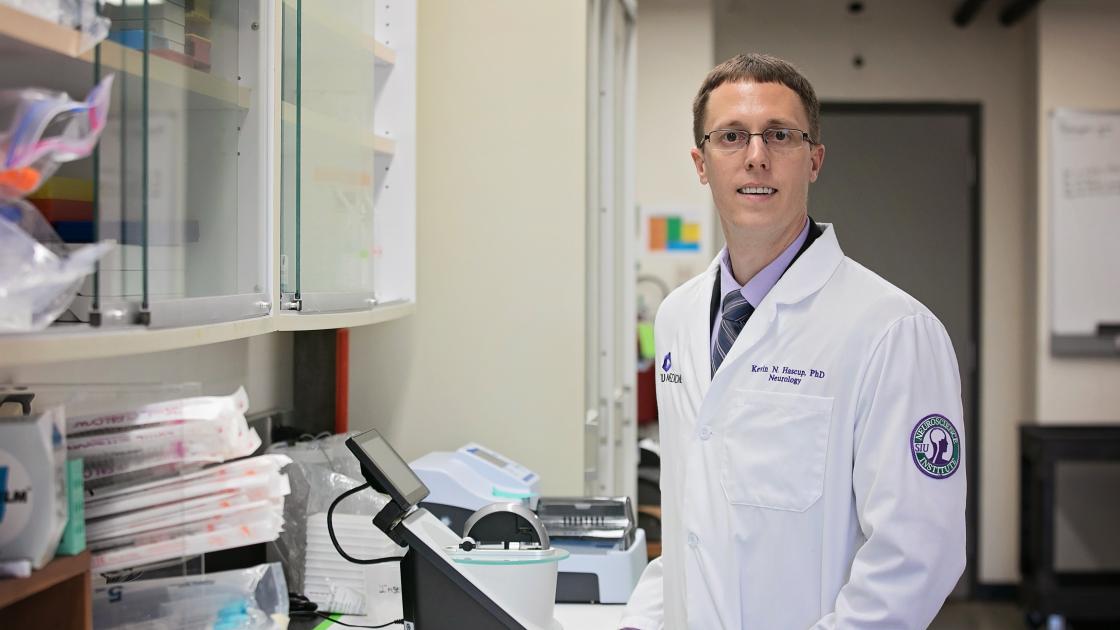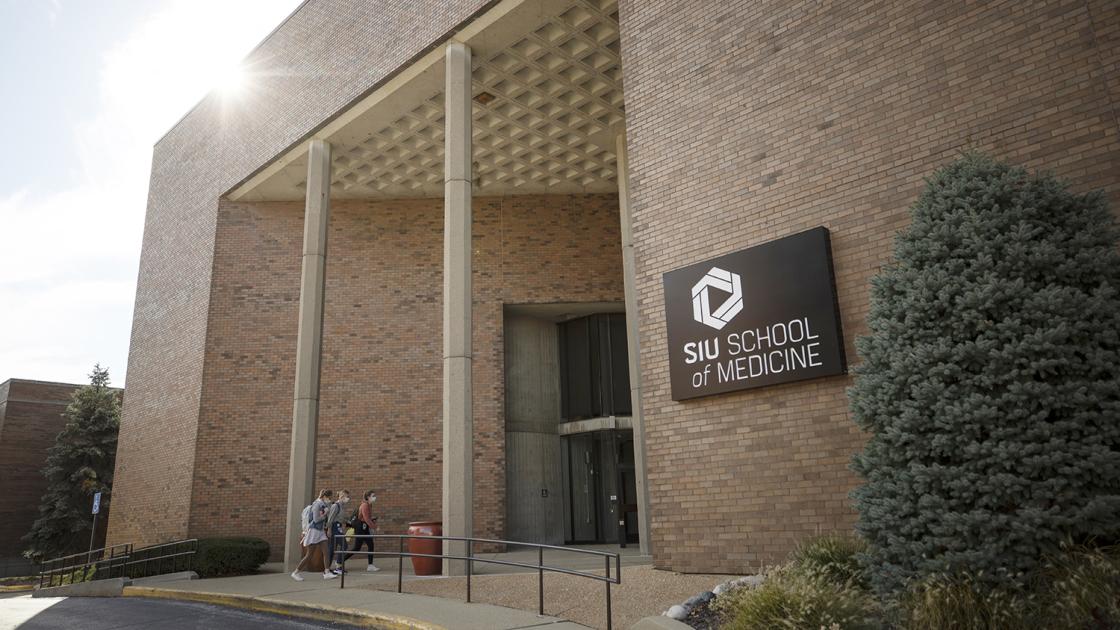
Hascup Lab, SIUC collaboration to explore new path for Alzheimer’s therapy
A collaboration between neuroscience and engineering will explore a novel approach in reducing formation of plaques commonly found in those with Alzheimer’s.
Kevin Hascup, PhD, of the Smith Alzheimer’s Center at SIU Medicine, and Chilman Bae, PhD, of Southern Illinois University Carbondale were awarded an SIU System Collaborative Grant to investigate how a cellular pathway called Piezo channels could be key in helping unlock better treatments for Alzheimer’s disease and related dementias.
Piezo channels are located throughout the body and are like gates in our cells that open up when we feel touch, hear sounds, move our body, and more. When these gates open, positive ions go in and change the cell’s response to their surroundings.
Recent research indicates Piezo1 channels on specific brain cells can sense the presence of amyloid-beta plaques, engulf the plaque and try to degrade it, suggesting a possible pathway to deter Alzheimer’s progression. This study will focus on modulation of Piezo channels through an amino acid called D-methionine (D-met) and the immunological response.
The project builds on a previous collaboration between Dr. Bae and SIU Medicine, where he and Kathleen Campbell, PhD, explored the relationship between Piezo channels, D-met, and its protective effects against noise-induced hearing loss.
“The diverse expertise and wealth of collaborative opportunities within the SIU system provides moments like these where we can chart new territory alongside someone like Dr. Bae,” said Hascup. “Finding avenues for improved Alzheimer’s treatments is a constant mission of the Smith Alzheimer’s Center and we look forward to investigating this hidden potential.”
Very little is known about this method to remove amyloid plaques, and these data and findings could help set the foundation for future research, Hascup said. Treatment options are limited for Alzheimer’s disease and effectiveness has been marginal so far. Reducing amyloid-beta plaques has been a key component of recently approved Alzheimer’s treatments and been an area of concentration for research.
This ambitious project unites the Hascup Lab, which studies Alzheimer’s at SIU School of Medicine, and Dr. Bae, a research scientist and assistant professor in the Department of Electrical and Computer Engineering at SIU Carbondale. The SIU System Collaborative Grant program promotes new biomedical research collaborations and fosters receipt of extramural funding for research projects between faculty at SIU campuses.



